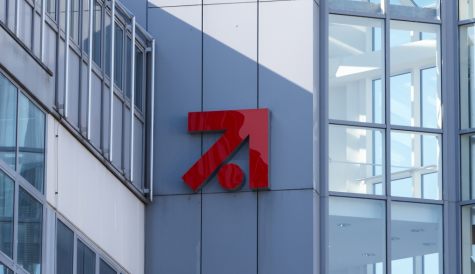Confirmed: BBC to foot licence fee bill for over-75s
The UK government has ordered public broadcaster the BBC will foot a £600 million (US$929.4 million ) bill for free TV licences for over-75s.
This is to be phased in from 2018/19, with the Corporation taking on the full cost from 2020/21. Estimates of the cost range from between £600 million and more than £650 million, with the official total in 2013/14 being £608 million, according to the BBC Annual Report.
The government has demanded the BBC take on the provision due to the state of Britain’s economic deficit.
In return, the Conservative government said it would “forward legislation in the next year to modernise the licence fee to cover public service broadcast catch-up TV”.
Currently, the British licence fee is mandatory for all viewers using a TV set, but not for those watching live channels through on-demand platforms and web-connected devices. The likelihood now is a subscription charge will be brought in.
Furthermore, the government said it expects the licence fee, which currently stands at £145.50 a year, would rise in line with inflation during the next Charter Renewal period, though with this currently at 0.1% it may not seem a huge boon to BBC bosses scrapping to bring its finances to a more stable footing.
However, this would only happen if the conclusions of the review find it a viable option in relation to “to the purposes and scope of the BBC” and if the broadcaster showed “it is undertaking efficiency savings at least equivalent to those in other parts of the public sector”.
The deal will also end a decree on the BBC that forced it to ring-fence cash to allow for broadband roll-out around the UK. This will fall to £80 million in 2017/18, £20 million in 2018/19, £10 million in 2019/2020 and nothing by 2020/21.
A final element of the government’s announcement noted it would “carefully the case for decriminalisation” of the licence fee – a change the Conservatives are thought to be largely behind.
Unexpectedly making the announcement ahead of Charter Renewal talks set for 2017, UK Chancellor George Osborne said: “The BBC is a valued national institution that produces some of the finest television and radio in the world. But it is also a publicly-funded body, so it is right that it, like other parts of the public sector, should make savings.”
“The deal we have agreed with the Corporation means that it will take on the significant cost of TV licences for the over-75s, easing some of the pressure on taxpayers who have to meet the country’s welfare bill, while also ensuring that our promise to maintain pensioner benefits is met in full over the next five years.”
“We have secured the right deal for the BBC in difficult economic circumstances for the country,” said BBC director general Tony Hall.
“This agreement secures the long term funding for a strong BBC over the next Charter period. It means a commitment to increase the licence fee in line with inflation, subject to Charter Review, the end of the iPlayer loophole and the end of the broadband ringfence. In the circumstances, the BBC has agreed take on the costs for free licence fees for over-75s, and after the next parliament, will take on the policy.”
Hall’s predecessor, Mark Thompson, came close to resigning over the over-75s issue, claiming it would be a disaster for the BBC, while current BBC director of television Danny Cohen has also indicated programming, and even television and radio channels, could be cut if it comes to pass.
Commentators have already moved to criticise the timing of the announcement, which came before any public consultation, and the back-room nature of the negotiations.
Rona Fairhead, chairman of the the BBC Trust, which is the under-fire body that governs the BBC, wrote in a letter to Culture Secretary John Whittingdale she accepted the decision “as a legitimate one”, but added she could not “endorse the process by which it has been reached”. It is the second time in five years the BBC and government reached an agreement without public consultation.
“It is our presumption that the government will now not seek to impose further costs on the BBC during the Charter Period,” wrote Fairhead.
“Both the Trust and the Executive are committed to driving further change and efficiencies, in the light of the economic challenges that face us, and to pursue all other possible sources of revenue.
“However, the Executive are clear that the necessary savings will not be achieved through productive efficiency alone and will inevitably have some impact on the nature of the BBC’s services.”
The news comes days after the BBC announced it was cutting 1,000 jobs in a bid to save £50 million per year.




